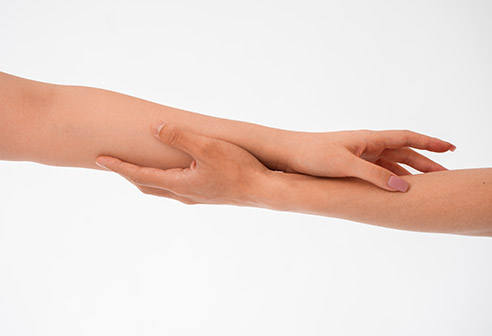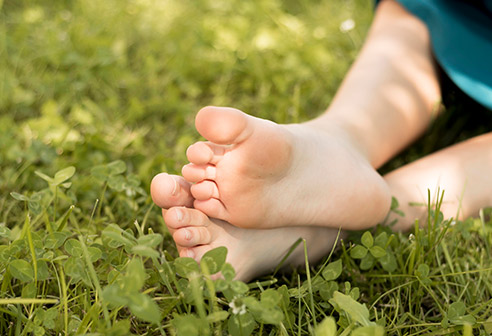
Due to the accelerating pace of life, increasing environmental pollution, and climate conditions, our showering habits and frequency have changed. Many people shower more than once a day. There is no single correct answer that applies to everyone regarding how often one should shower. A person's skin type, the climate they live in, their daily activity level, and their working conditions determine how often they should shower per week or per day. Many people follow a routine of taking short showers every day in the summer and bathing 3-5 times a week in the winter. While showering every day has significant health benefits, it also has some drawbacks. Short showers with lukewarm water provide a sense of hygiene and freshness. However, staying in the shower for a long time and using excessively hot water can damage our skin's protective barrier. The time we should spend in the shower should generally be in the range of 5-10 minutes, and the water temperature should be around 37-38 degrees Celsius. People who sweat heavily or get dirty during the day can shower daily. Dr. Lida Çiteli, a Medical Aesthetic Doctor who serves patients in Istanbul, explained how often one should shower according to their life rhythm, season, and climate conditions.
How Often Should You Bathe for Healthy Skin and Body?
Hygiene is one of the essential elements for health. However, showering more than necessary comes with some risks. A person's working conditions, skin type, physical activity level, environmental factors, and climate conditions determine the frequency of their bathing. People with a calm work pace who work at a desk can take short, lukewarm baths every other day. In contrast, people living in hot climates, working outdoors, or engaging in strenuous sports activities must shower every day. If the cleansing products you use are compatible with your skin, applied gently, and the water is lukewarm, showering every day is not harmful. This way, you can maintain body hygiene without damaging the skin's protective barrier. In the summer, showering frequency can be increased. However, it is beneficial to keep the duration short. In the cold winter season, while we reduce our showering frequency, we must pay extra attention to moisturizing our skin. Bathing every day is beneficial for odor control, mental freshness, and hygiene. However, staying in the shower for extended periods with excessively hot water leads to itching, dryness, and damage to our skin's barrier.
What Are the Effects of Showering on Skin Health?
When done correctly and at the right frequency, showering cleanses the dirt, oil, and salt residues that accumulate around the skin pores, and thus allows the skin to feel relieved. However, when showering too frequently or incorrectly, the lipid layer responsible for protecting the skin begins to weaken. The skin eventually becomes dry and more sensitive. Therefore, how you shower is just as important as how often you shower. The most crucial point here is to shower with lukewarm water and for short periods. When you shower with water at an excessively high temperature, the skin's protective barrier gets damaged. Problems such as dryness, itching, and redness occur on the skin. It is not necessary to soap your entire body while bathing. However, areas such as the feet, groin, and armpits should be prioritized. You should wash gently with cleansers that do not excessively strip your skin. After showering, our skin's moisture window is open. Applying a moisturizing cream immediately after showering prevents our skin from losing moisture. Light lotions may be sufficient in the summer, while more intensive moisturizing creams may be needed in the cold winter months.
How Many Times a Week Is It Enough to Shower?
Office workers living in a temperate climate can shower three to five times a week. However, in hot climates, people sweat heavily. Dirty and dusty work environments or intense sports activities may require showering every day. Short showers lasting five to ten minutes with lukewarm water will not cause any harm. If you don't lather your entire body with soap in every shower, the skin's protective barrier will not be damaged. By paying attention to the signals your skin gives you, you can determine the most suitable showering frequency for yourself.
Is Showering Every Day a Healthy Practice?
When done correctly and for the right duration, showering every day is a healthy practice. You can shower daily using gentle cleansing products for short periods. This way, you can maintain your hygiene, get rid of bad odors, feel mentally refreshed, and especially relax before sleep to get a more comfortable night's rest. However, staying in the shower for extended periods and washing with hot water damages your skin's moisture. Your protective barrier gets damaged. Complaints such as redness, dryness, and itching of the skin are experienced. It's important to remember that it is not showering every day that is harmful. What is harmful is showering for long periods with excessively hot water. You can protect your skin's moisture balance with moisturizing creams immediately after showering.
What Are the Healthiest Times of Day to Shower?
The ideal time to shower changes according to one's personal life rhythm. For example, a short, lukewarm shower in the morning helps you feel refreshed and invigorated throughout the day. When you shower in the evening, it cleans and refreshes your body, which has gotten dirty and tired during the day. It is beneficial to shower after intense exercise before your sweat dries. Especially for people with allergies, showering at night can help cleanse the pollen that has accumulated on their hair and skin.
Does Frequent Showering Harm Hair and Body Balance?
Frequent showering and using strong chemical cleansers lead to the drying of the scalp and skin. It weakens the skin barrier. Complaints such as dandruff, tightness, and itching occur. To maintain the balance of your hair and body, you should use shampoos, conditioners, and shower gels that are as mild and skin-compatible as possible. You do not need to lather your entire body in every shower. It is beneficial to primarily clean the areas where odor and sweat are concentrated. However, proper attention should be given to skincare after bathing.
How Does Sufficient Body Hygiene Affect the Skin?
To maintain body hygiene, the sweat, dirt, and salt that accumulate in the pores must be cleaned. Regular, short, lukewarm baths have a positive effect on skin health. If we use the right products and techniques while cleansing, our skin barrier is not only undamaged but is also supported. Maintaining body hygiene prevents the formation of acne or ingrown hairs on your body. However, hot water and harsh scrubbing can have the opposite effect. To reduce moisture loss, you should moisturize your skin no later than three minutes after showering.
What Should the Temperature of Bath Water Be for Hair and Skin?
As the temperature of the water you use while bathing increases, the oils on your skin melt, and the skin barrier begins to dissolve. This leads to our skin becoming dry and tight. A dull skin appearance, skin sensitivity, itching, and redness are among the negative consequences of showering with high-temperature water. Using very hot water when washing our hair can lead to conditions like static and dandruff. The ideal water temperature for bathing is generally between 37 and 38 degrees Celsius.
How Should We Change Our Showering Habits in Summer and Winter?
We should adjust our showering habits according to seasonal conditions in summer and winter. In the summer, due to sweating and leftover sunscreen residue on our skin, it is necessary to take frequent lukewarm showers. While showering, it is important to focus on areas that sweat a lot, such as the feet, armpits, and groin. In the cold and dry weather of winter, you can shower three to five times a week.
What is the Importance of Post-Shower Skincare?
After showering, our skin can lose its moisture. Therefore, it is beneficial to moisturize our skin within the first three minutes after showering. We can moisturize our body with light lotions in the summer and with richer creams in the winter. This way, you can have more balanced, comfortable, and healthy skin.



